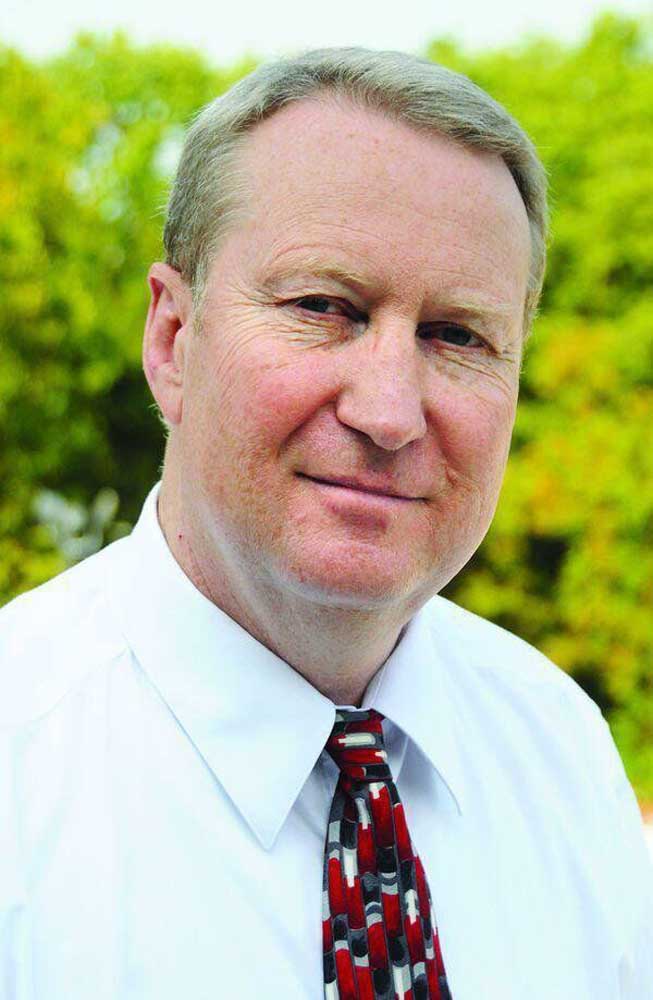Mark Millican: It happens every day in Georgia
Published 8:00 am Friday, January 19, 2024

- Mark Millican
Sadie (not her real name) ran away from home in Georgia, but the thrill of partying life had worn off. She decided to go back, and stuck out her thumb. She got into a nice car and two minutes later the driver pulled out a gun and put it on the seat beside him. He told Sadie to call her mother and tell her she wouldn’t be coming home.
Sadie had to leave a message, hoping the tone in her voice would tip her mother off that something was bad wrong, according to theatlantavoice.com. Her mother told the newspaper, “I prayed like no man’s business. I fasted and prayed.”
Trending
Fortunately, though it took awhile, Sadie was located and rescued by law enforcement authorities just before being sold to a sex trafficker in a northern state. Now she tells her story to try and alert other young girls. January is National Human Trafficking Prevention Month, and every U.S. president since 2010 has proclaimed it so. In America, Georgia is the seventh-worst state for human trafficking and Atlanta was named by the FBI as one of 14 U.S. cities with the highest rate of children used in prostitution, according to covenanthousega.org.
To believe it isn’t happening in Gilmer County — just a few miles away from Metro Atlanta since Dawson, Lumpkin and Pickens counties are now included in that designation — is naive. We already have the drug trade and its gang members taking advantage of rental properties here, witnessed by a highly-publicized brutal murder in recent years. In Whitfield and Murray counties, major routes coming out of Atlanta such as I-75 and U.S. Highway 411 are certainly pipelines for trafficking of humans and drugs.
Halley Gillespie, with the National Center for Missing & Exploited Children (NCMEC, missingkids.org), asked last week, “Did you know that YOU can play a role in identifying child sex trafficking? That’s right! A common misconception of child sex trafficking is that it is hidden away from the public and nearly impossible to spot. However, it often occurs right before our eyes.”
The NCMEC website details, “Child sex trafficking is a form of child abuse that occurs when a child under 18 is advertised, solicited or exploited through a commercial sex act. A commercial sex act is any sex act where something of value — such as money, drugs or a place to stay — is given to or received by any person for sexual activity.
“While most people think about child sex trafficking occurring in other countries, at NCMEC the reports we receive and cases we support involve primarily American children who have gone missing and are being exploited in our own communities. Also, while we prefer to think of the traffickers as strangers, the reality is traffickers are often known to the children and can be their parents, guardians, romantic partners, teachers, church members, coaches or other individuals the child trusts.”
“Runaways” from home are particularly vulnerable.
Trending
“Traffickers often exploit their situation by making false promises of love, safety and affection,” NCMEC notes. “These predators take advantage of their need for basic necessities such as clothes, food and shelter.”
Gillespie adds, “In 2023 alone, NCMEC received more than 18,400 reports of possible child sex trafficking. If you see or know a child who exhibits one or more of the signs below, it can potentially mean they are at risk of victimization through child sex trafficking”:
• A child is in possession of unexplained large amounts of cash, prepaid cards, hotel keys, multiple cellphones or apps providing multiple cellphone numbers.
• The child’s ID is being held by another person, or they do not have any ID.
• Signs that the child has been coached when talking to people, letting others speak for them or looking at others before they speak.
• Tattoos or branding the child does not wish to talk about, explain or did not choose.
• Chronic homelessness, youth who are unstably housed or children who frequently run away.
• Abruptly disconnects from family and friends.
• Close association with an overly controlling adult.
• Regular, unexplained school absences.
Here are some eye-opening statistics on human trafficking in Georgia, provided by the Covenant House website mentioned above:
• 12,400 men purchase sex with young women in any given month.
• Approximately 100 adolescent females are sexually exploited each night.
• Adolescent females controlled by the child sex trafficking trade are sexually exploited by an adult male on an average of three times per night.
Parents, as mentioned in a column in this corner last year, strongly advise your children to never send revealing photos of themselves to anyone online, even their friends. Those friends could share them with someone else without your child even knowing.
More can be learned at missingkids.org/trafficking. If you suspect an incident of child sex trafficking, call the NCMEC hotline at 1-800-THE-LOST (1-800-843-5678) or make a report at CyberTipline.org. If you see something, say something.
Mark Millican is a former staff writer for the Dalton Daily Citizen.





